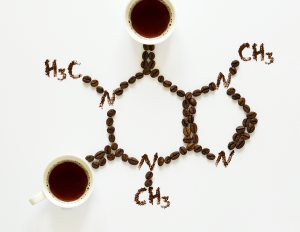Likely if you are reading this blog you have at one point in your life been in the market for a weight loss product. There has been a bombardment of weight loss fads in the past couple of decades and each one claims to be more effective and boasts more long-term benefits than the last one. Fat freezing, liposuction, phentermine, and the HCG diet, make up 50% of weight loss attempts annually in the United States. The one issue with each of these interventions is they don’t teach you long-term weight management. In fact, if you research each type of weight loss method the associated website warns that unless you watch what you eat and exercise, you can gain the weight back. We will dive more in-depth into these weight loss fads and the effects of each one on your weight loss and health.
Fat Freezing

We’ll kick it off with the most recent fad in weight loss to come on the market; fat freezing. Fat freezing was the number one weight loss treatment used in the United States in 2018. Fat freezing involves using a vacuum and sucking a part of the body into the freezing chamber such as the fat on the back of your arms. That treatment section is then subjected to very cold temperatures to kill the fat cells lying underneath the skin. It takes about 4-6 months to notice the effects from fat freezing and according to many websites that have studied this method, most people report a 15-30% reduction in fat in the area treated. Certain target areas require 1-6 treatments depending on area size and each treatment can range in cost from $1,000-$4,000. If you have an area of fat that you are wanting removed that is large, you could end up spending $24,000 to have it reduced by only 30%!
Companies that offer fat freezing warn buyers on their websites that this method is used for spot treatment and not for large amounts of weight loss. They also warn that unless a healthy lifestyle is followed, you can gain the weight back. Therefore this method is not a cure for weight loss or weight management but is just a short term solution that does not solve the underlying problems associated with living an unhealthy lifestyle. Here is the catch; since the fat cells in the treatment area are destroyed and your body cannot grow any new fat cells there, your body is forced to store fat in other areas. So if you have your stomach treated and eat too many calories, your body may store fat in your back or your thighs or arms. These unwanted fat storage areas in your body are referred to as ‘fat pockets’.
Liposuction
Lipoplasty, or liposuction, is one of the most common cosmetic procedures in the United States with roughly ~300,000 procedures done each year. The procedure is not classified as a weight loss procedure and is instead listed under body contouring, which is the same category that nose jobs and breast augmentations are in. This means the procedure is used for appearance and not for physical health. Liposuction permanently removes fat cells from target areas by making a small incision in the skin and inserting a long skinny instrument attached to a vacuum to suck out the fat. Along with fat, fluids are also sucked out and may be replaced via IV. Usually local anesthetic is used but if it is a big enough area, you might need to be put under general anesthesia. This can require an overnight hospital stay in some cases. Risks of liposuction procedure include infection, short or long-term numbness in the area, and potential scarring. Some risks to physical appearance include a redistribution of fat in other untreated areas, and if too much fat is removed in the target area then lumps can form under the skin creating a bumpy appearance.

Like cool sculpting, liposuction is not a long-term weight loss solution and you can gain weight back in unwanted areas if you do not follow a healthy lifestyle after the procedure. Any time you are in a calorie surplus, your body will store fat if you are not burning it to fuel exercise. So even after getting liposuction, if you do not exercise enough and overeat, you will gain fat back in areas that you did not have the procedure done. Keep this in mind when you are looking for a way to lose weight that will last for life!
Phentermine

Phentermine is a prescription drug that is often combined with other prescription drugs as a method for weight loss. This method became popular in the 1990’s and is still used today. It requires a prescription by a physician and is only recommended for short term use with a maximum recommendation of 12 weeks. Phentermine works as an appetite suppressant and claims weight loss success when used in combination with exercise and healthy eating.
A study of phentermine use was done and researchers found possible risks associated with use include insomnia, flushing, back pain, epigastric pain (stomach pain), chest discomfort, skin issues, sweating, and increased anxiety. These symptoms were reported in a short-term study and no long-term effects are known due to the recommended dosage time frame of 12 weeks or less.
Like other weight loss fads, phentermine is not a cure for long-term weight management. When taking it, your appetite is reduced. But what happens when you stop taking it? As soon as your appetite stops being reduced artificially then your normal appetite comes back. If you have not learned how to manage your calories and adopted a healthy lifestyle then you can gain the weight back and more. That in combination with an increased appetite can cause you to gain even more weight than you had initially needed to lose in the first place. In effect with this method, you can lose weight but you don’t develop any long-term skills that will help you learn to keep the weight off for good.
HCG
The HCG diet is a very low calorie diet (<800 calories/day) that is supplemented with the hormone Human Chorionic Gonadotropin. This hormone is produced mostly during pregnancy and it functions to release fat that the pregnant woman can use in times of famine, if necessary.

HCG is offered in weight loss programs and is delivered via injections or oral pill form. It is used in combination with low calorie diets and often people participating in this program eat only 500-800 calories each day. Hypothetically, the calories are set that low in order to trigger that starvation and then they inject HCG to encourage fat release from cells to be used as fuel as the person is not getting enough calories from the diet to fuel their daily needs. Some dangers associated with severe calorie restriction (800 calories or less a day) can include suboptimal nutrition intake (i.e. vitamin deficiencies), long-term metabolism depression, mood changes due to extended food deprivation, gallstone formation, imbalance of electrolytes and irregular heartbeat. Side effects of HCG use can include fatigue, irritability, restlessness, depression, edema (retention of fluid in tissues), and swelling of the breasts in boys and men (gynecomastia). Serious health concerns include risks of blood clots.
Not only is this fad diet dangerous, it doesn’t work because many people report that they gain their weight back after they are done with the diet. No one can survive long-term on 800 calories/day as that can lead to malnutrition and as soon as you eat a normal diet of 1,000+ calories you gain the weight back.
The one common theme in all of the research behind cool sculpting, liposuction, phentermine, and the HCG diet is “if you do not make permanent lifestyle and habit changes then you can regain weight back.”
Achieving a Healthy Body Composition & Lifestyle
30/10 Weight Loss for Life promotes long-term weight management through healthy eating and exercise. These healthy lifestyle changes are encouraged throughout the weight loss portion of our program and our free for life maintenance program. We don’t believe in momentary weight loss, we believe in lasting change that will help you gain and keep control over your eating habits. We ensure clients get enough calories during their weight loss journey and the proper nutrition full of protein, fat, carbs, and vitamins and minerals. Once they achieve a healthy body composition, we guide them through weight maintenance and provide accountability so they keep up with healthy habits so they can continue to keep the weight off, for life!
Sources
https://blog.nasm.org/uncategorized/low-can-go-risks-trying-lose-weight-low-calorie-diets
https://www.healthline.com/health/drugs/phentermine-oral-capsule#interactions
https://www.ncbi.nlm.nih.gov/pmc/articles/PMC2687747/
https://www.mayoclinic.org/tests-procedures/gastric-bypass-surgery/about/pac-20385189




